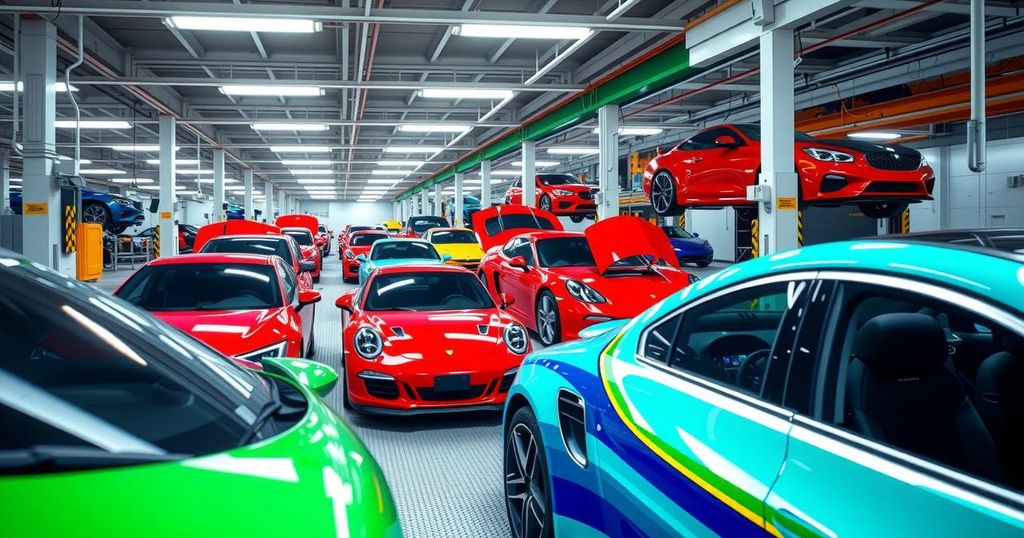Significant Growth in Argentina’s Automotive Sector: February Update
Argentina’s automotive industry saw a production increase of 41.1% last month, totaling 42,419 units. Exports surged by 102.1% compared to January, while wholesale sales increased by 33.8%. Despite a decline in overall exports year-to-date, strong sales figures reflect growth in the sector. President Martin Zuppi advocates for further tax reductions to enhance industry competitiveness.
Argentina’s automotive industry experienced remarkable growth in production last month, reaching 42,419 units, reflecting a substantial increase of 41.1% from January and a 13.1% rise compared to February 2024. The Association of Automotive Manufacturers (ADEFA) reported that exports also increased significantly, totaling 22,496 vehicles—an impressive 102.1% gain from January but a slight decline of 4.6% from February 2024. Furthermore, wholesale sales to dealerships rose to 45,617 units, marking a 33.8% increase from January and a 37.3% surge from the previous year.
In the first two months of this year, production saw a growth of 20.5%, reaching 72,477 units, although exports fell by 13.5%, totaling 33,628 units in comparison to the same period last year. Sales during January and February reached 79,706 units, indicating an increase of 62.1% compared to the same timeframe in the previous year.
Martin Zuppi, President of ADEFA, attributed the automotive sector’s success to recent tax reductions implemented by the national government. He encouraged provinces and municipalities to adopt similar tax measures, noting that Argentina’s automotive sector is affected by taxes at multiple governmental levels, including national, provincial, and municipal. By lowering localized taxes such as property and sales taxes, automotive companies could experience decreased costs and enhanced competitiveness.
Zuppi further commented on the sector’s performance, stating, “With 18 working days of activity and even with some plants in recess due to vacations, the sector recorded a good performance in line with what was anticipated last month.” He emphasized the positive outcomes of collaborating with governmental authorities towards shared goals, arguing that any reduction in the tax burden would enhance competitiveness and recovery across various industry metrics. He highlighted the need for local governments to contribute for continued growth in the export profile of Argentina’s automotive industry, securing its long-term sustainability.
In summary, Argentina’s automotive sector is witnessing robust growth, marked by a significant rise in production, exports, and wholesale sales. President Martin Zuppi’s advocacy for further tax reductions at provincial and municipal levels presents an opportunity to enhance the industry’s competitiveness. The collaborative efforts between the automotive sector and government entities are essential for ensuring ongoing success and sustainability in the industry.
Original Source: en.mercopress.com




Post Comment